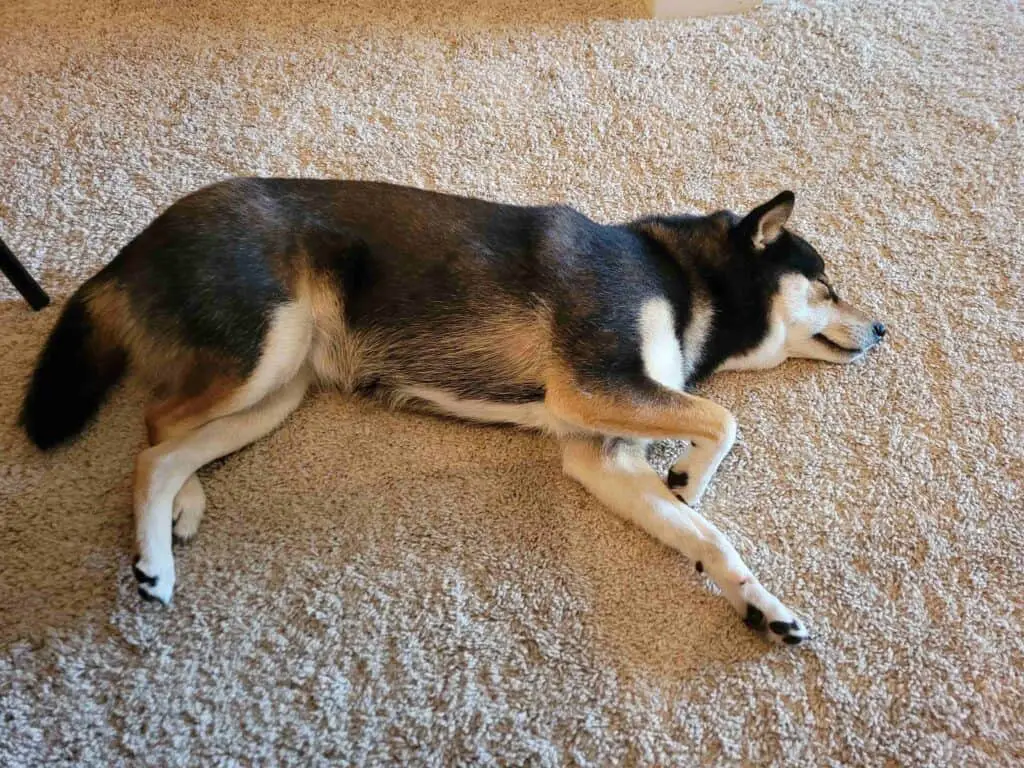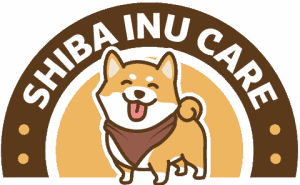This post contains affiliate links.
Witnessing your Shiba Inu experience a seizure can be concerning and distressing. Although Shiba Inus are generally healthy, they can still experience seizures. If you notice your Shiba Inu exhibiting seizure symptoms, it’s important to understand the potential causes, recognize the patterns, and seek professional help as necessary.

What Are Seizures?
Seizures are sudden, uncontrolled electrical disturbances in the brain. They can cause changes in your behavior, movements, feelings, and levels of consciousness. When you experience a seizure, it’s like an electrical storm in your brain. There are different types of seizures:
- Absence seizures: These cause a short loss of consciousness, often with staring spells.
- Tonic seizures: They lead to stiffening of your muscles, especially in your back, arms, and legs.
- Clonic seizures: These are characterized by repeated jerking movements on both sides of your body.
- Myoclonic seizures: They cause sudden brief jerks or twitches of your arms and legs.
- Atonic seizures: These result in a loss of muscle tone, causing you to collapse suddenly.
How To Identify A Seizure
Identifying seizures in your Shiba can be challenging, especially if you’re unfamiliar with them. Symptoms include confusion, disorientation, pacing, muscle contractions, shaking, twitching, loss of bladder or bowel control, and signs of distress.
During a seizure, remain calm and protect your dog from potential hazards. After the seizure, allow your dog to rest and recover. Consult with your veterinarian if your dog experiences a sudden increase in frequency or severity of seizures.
What To Do If Your Shiba Inu Has A Seizure
If your Shiba Inu starts to have a seizure, stay calm and follow these steps:
- Keep them safe: Clear the area around your dog to prevent injury. Remove any objects that can cause harm, and ensure they’re on a soft surface like a cushion or a rug.
- Stay away from their mouth: Don’t attempt to put anything in your dog’s mouth during a seizure. It’s a common myth that they can swallow their tongue, but this isn’t true. Trying to hold their mouth could result in accidental bites.
- Time it: Take note of how long the seizure lasts. This information is important for your veterinarian to assess the severity and possible causes of the seizure.
- Speak soothingly: Gently talk to your Shiba Inu during the seizure. Your voice can be calming and reassuring for them.
- Record it: If possible, take a video of the seizure. This can be valuable for your veterinarian to ascertain the exact type of seizure your dog is experiencing.
- Take them to the vet: After a seizure, take your Shiba Inu to the vet for a checkup. The vet may run tests to check for underlying causes like epilepsy, toxins, infections, or metabolic issues.
Stay vigilant for any behavior changes and create a safe environment in case of future seizures. Develop a plan of action with your vet.
How can I manage my Shiba Inu’s seizures?
Seizures in your Shiba Inu can be a worrisome occurrence, but with proper management, you can help reduce their frequency and keep your furry friend safe.
Prevention
A crucial aspect of managing seizures is preventing triggers. To do this, you should:
- Monitor their diet: Ensure they are eating a balanced diet and keep an eye on any new food or treat items that may have triggered a seizure. This might take some time and trial and error, but it’s essential for their well-being.
- Pay attention to stressors: Identify any potential stressors in your dog’s life and work towards removing or minimizing them. These could include loud noises, crowded spaces, or changes in routine.
- Consult your vet: Discuss your concerns with your veterinarian and consider whether medication may be necessary. Anti-seizure medicines may be prescribed to help control seizure frequency or severity.
Care
When your Shiba Inu does have a seizure, it’s essential to know how to help them during the episode. Here are some tips:
- Stay calm: Although it’s difficult, keeping calm and composed is vital. This ensures that you can take the necessary steps to help your Shiba Inu and prevent further complications.
- Ensure their safety: Gently move your Shiba Inu away from any dangerous objects or hazards. Create a comfortable, soft space for them to lie down, and avoid placing anything in their mouth.
- Time the seizure: Keep track of the seizure’s duration using a stopwatch or your phone. This information is valuable for your vet to understand the severity of the situation.
- Document the seizure: Once it’s over, note the circumstances surrounding the seizure, like the time of day, any triggers, and other details. This will help your veterinarian create a more comprehensive care plan for your pet.
Can Dogs Recover From Epilepsy?
Since epilepsy cannot be cured, animals may require lifelong treatment. Dosage reduction is only possible if the animal remains seizure-free for at least a year and should be done slowly over several months to prevent seizures.
Summary
You may be curious about whether Shiba Inus are prone to seizures. Though generally healthy, like any breed, they can develop certain health issues. Though not common, seizures can occur in Shiba Inus.
There are various factors that can contribute to seizures, including genetics, environmental factors, and underlying medical conditions. Breed-specific issues like hip dysplasia and patellar luxation do not directly cause seizures but can affect overall health.
Knowing the early signs of seizures and seeking veterinary care promptly is important.
Frequently Asked Questions
Are Some Dog Breeds More Prone To Seizures?
Yes, some dog breeds are more prone to seizures than others. For example, Belgian Tervurens, Beagles, and Labrador Retrievers have a higher risk of developing epilepsy. Keep in mind that any breed can suffer from seizures, so it’s important to be aware of your dog’s health and monitor for any early warning signs.
Are Seizures Common In Shiba Inus?
Seizures are not very common in Shiba Inus, but they can occur. It’s essential to know the symptoms and act quickly if you suspect your Shiba Inu is having a seizure. Consult your veterinarian for guidance and appropriate treatment.
What Can Trigger Epilepsy In Dogs?
Various factors can trigger epilepsy in dogs, including genetic predisposition, brain injury, metabolic disorders, and certain medications. Environmental factors like exposure to toxins or extreme temperatures can also provoke seizures. Keep your dog’s environment safe and stress-free to reduce the risk of developing epilepsy.
Can I Leave My Epileptic Shiba Alone?
It’s not recommended to leave an epileptic Shiba Inu alone for long periods. Seizures can be unpredictable, and if your dog experiences one while you’re away, they could get hurt or suffer complications. Make arrangements for someone to check on your dog if you must be away for an extended time.
Can Different Foods Trigger Epilepsy?
Some dogs with epilepsy may experience seizures triggered by specific foods or ingredients. It’s essential to work with your veterinarian to determine if dietary changes could help manage your dog’s epilepsy. They can help you identify any potential triggers and recommend an appropriate diet.
What Health Issues Are Common For Shiba Inus?
Aside from epilepsy, Shiba Inus can suffer from various health issues, including hip dysplasia, glaucoma, cataracts, allergies, and hypothyroidism. Regular veterinary check-ups and preventative care can help keep your Shiba Inu healthy and detect potential issues early on.
